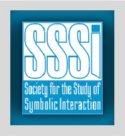 |
 About EU SSSI About EU SSSI

The European Society for the Study of Symbolic Interaction (EU SSSI)
emerged from an informal network of scholars having an interest in sociological social psychology, especially symbolic interaction, and in the study of related issues through the use of qualitative methods. The first conference of the EU SSSI was held in Pisa in 2010, followed by conferences in Kassel (2011), Rotterdam (2012), Uppsala (2013), Aalborg (2014), Salford (2015), and Topola (2016), which were attended by both European and American sociologists. Many of the participants were members of the Society for the Study of Symbolic Interaction (SSSI)—an international professional organization of social scientists with its own scientific journal, yearly conferences in conjunction with the meetings of the American Sociological Association, and a number of prestigious yearly awards for scholarly achievements.
The success of these EU SSSI conferences, attended by three generations of European researchers, had at least two important results. First, it led to a stable and growing interest on the part of the SSSI in the European traditions in the study of symbolic interaction, which were largely unknown in North America. Second, it motivated the EU SSSI to gain official recognition as a collective member of the SSSI, have structured discussions concerning research cooperation and the planning of edited publications, and form international research teams dealing with important European issues.
Sociological social psychology now has a history of more than a hundred years. Its beginning and development is to a great extent connected with the fact that its scientific core is comprised of symbolic interactionism as a social theory, philosophy, and methodology.
The EU SSSI Board
President
- Andrea Salvini, University of Pisa, Italy
Board members
- Andrew Blasko, Institute of Population and Human Studies, Bulgaria
- Michael Dellwing, University of Kassel, Germany
- Robert Dingwall, Nottingham Trent University, United Kingdom
- Emma Engdahl, Gothenburg University, Sweden
- Antoaneta Hristova, Institute of Population and Human Studies, Bulgaria
- Vessela Misheva, Uppsala University, Sweden
- Thaddeus Müller, Lancaster University, United Kingdom
- Krzysztof T. Konecki, University of Lodz, Poland
- Anna Kacperczyk, University of Lodz, Poland
- Gregory Smith, University of Salford, United Kingdom
|
 |


 Search
Search









